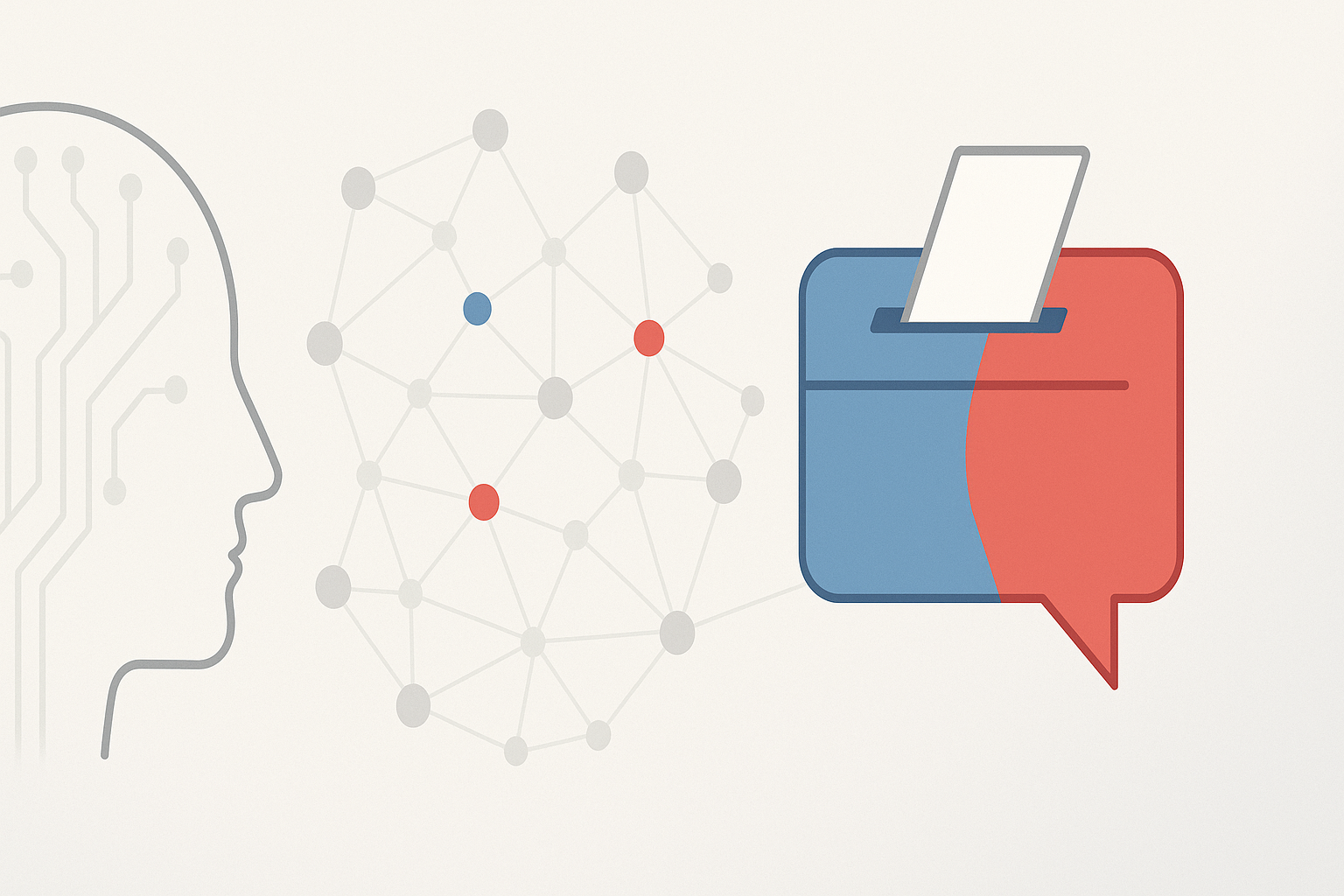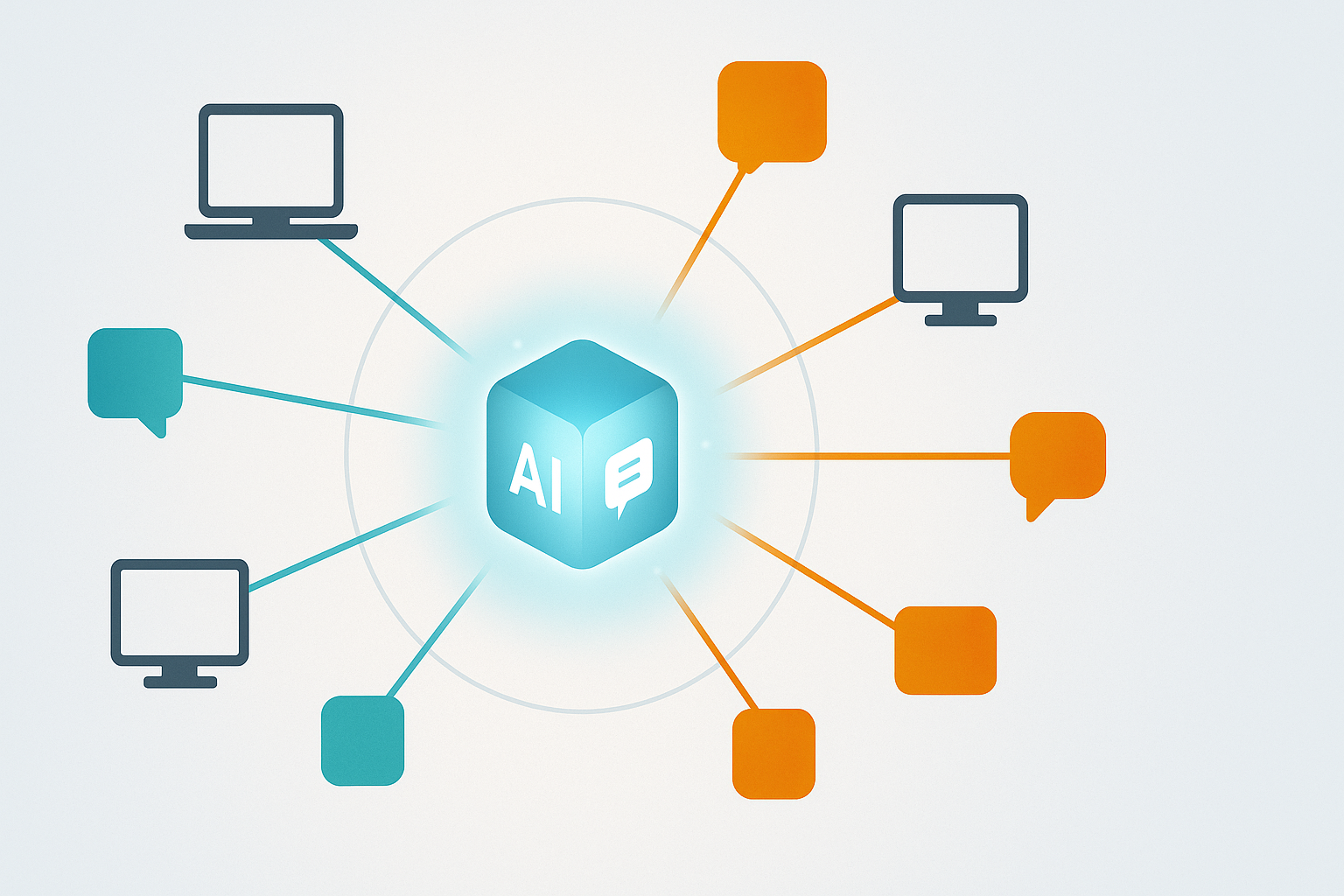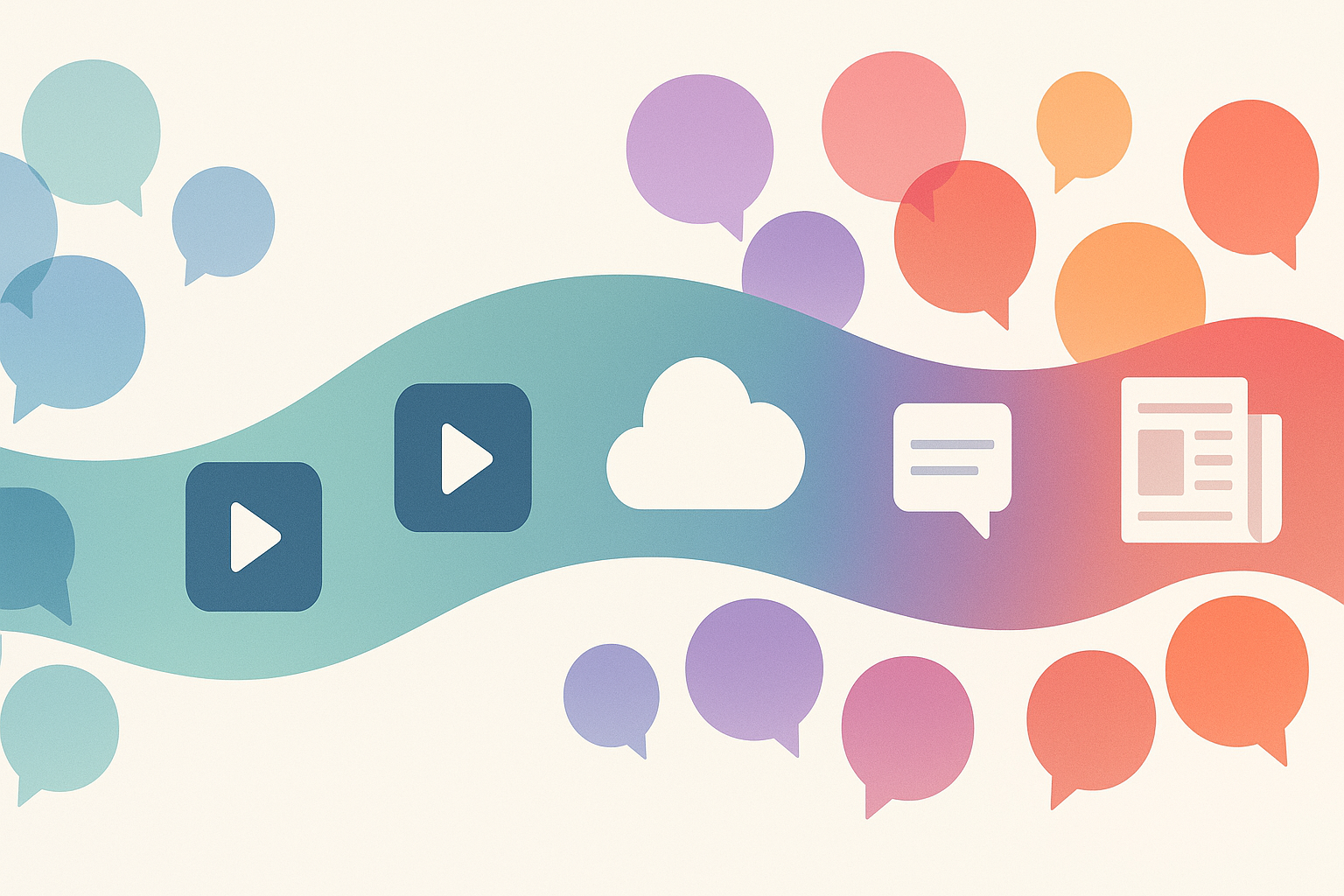ONGOING PROJECTS
AI AND POLITICS

Communication transmitters have been targets for political scrutiny and manipulation throughout history. Critics of new technologies point to political biases in the digital age, where conservatives claim a liberal bias in news media, and liberals criticize social media for facilitating the spread of misinformation from the right. The proliferation of AI is no exception to this trend. Following the launch of ChatGPT, we suggest that accusations of political bias in AI will intensify, mirroring the historical trajectory of earlier communication technologies that attract criticism and politicization by strong partisans. If AI turns political, it could severely impact public trust and adoption of AI, and more worryingly, lead to the rise of “partisan AI”. Drawing from the literature of identity politics and political media attacks, we approach this issue by asking questions about the transition from technological to political AI, as well as platform and user differences in the politicization of AI. We anticipate that the politicized turn in public discourse surrounding AI will be particularly salient among active partisans. We will investigate this question from a multi-platform perspective by comparing both TikTok and YouTube data. Broadly, we anticipate an emerging trend of associating AI with political discourse.
A VISUAL ANALYSIS OF “WOKE” DISCOURSE ON YOUTUBE

Scholars have extensively examined the politicization of social issues and movements, conceptualizing politicization as comprising actor participation and discursive conflict dimensions. Despite the central role of social media platforms, particularly YouTube, in shaping politicized discourse, limited attention has been paid to the visual mechanisms through which politicization is performed and intensified. This study addresses that gap by analyzing YouTube thumbnails of “woke”-related videos published between 2012 and 2022. We examine how political actors and conflicts are visually portrayed and whether the visual politicization of “woke” is more pronounced among conservative and anti-woke channels than among liberal and #StayWoke channels. Additionally, we investigate how stylistic features that likely amplify politicization – visual arousal and visual loudness – ideological groups. Together, these analyses advance understanding of how the politicization of “woke” discourse is both represented and intensified through visual communication on social media
TRUST IN GAI ACROSS THE DIGITAL MEDIA ECOSYSTEM

How do people express trust and distrust in generative AI across social media platforms? What do these expressions reveal about how GAI is positioned within the broader digital media ecosystem?
COMPLETED PROJECTS
#METOO CROSS-PLATFORM DISCOURSES
This project situates our analysis in discourses on sexual violence and gender justice activism on Twitter, Facebook, Instagram, and Reddit. We propose a three-pronged framework to understand discourses surrounding social media activism initiated by networked counterpublics: personal expression that raises public consciousness and fosters social support, calls to action that demand social changes, and contention that can either invigorate or stymie action. We use supervised machine learning to classify three discourses (networked acknowledgement, calls to action, and feminism contention) and apply time series analysis to model their interrelations.
Results show that networked acknowledgment stimulates both calls to action and feminism contention and that calls to action predicts feminism contention across all platforms. Also, these discourses were more sensitive to various events on Twitter and Facebook, but more ephemeral and cyclical on Instagram and more persistent and mutually reinforcing on Reddit. These findings underscore the opportunities and challenges in social media activism and articulate cross-platform similarities and differences.
THE POLITICIZATION OF THE #METOO MOVEMENT
With existing research showing the fragilities of social media activism and the stubbornness of partisan beliefs and attitudes, we examine whether partisans politicize social media activism. Politicization is conceptualized as partisans crowding out non-partisan participants, dominating conversations and debates, and weaving selective events into narratives. Our large-scale and multi-layered computational analysis of discourses surrounding the #MeToo movement is based on a comprehensive list of related accusations and a vast corpus of all #MeToo tweets. Through cluster analysis of the retweet network, we identified different groups and found that partisan users accounted for the overwhelming majority of the tweets. In the next step, we will apply supervised machine learning to classify different expressions and use time series modeling to examine the relationship between features of accusations and types of expressions.
FROM #STAYWOKE TO #WOKEMINDVIRUS
This project explores how the discourse surrounding a racially marginalized community becomes politicized via culture wars narratives across platforms. Drawing from the thesis of identity politics and political polarization, we discuss how racial justice discourse is hijacked by partisan leaders and their followers over time and explain how this process plays out through both differentiated and coordinated social media platform use. Situating our discussion in the ‘woke’ discourse as originated within the Black Twitter community, we collect data from 2012 through 2022 on Twitter and YouTube and apply user and content-level computational analyses to reveal that the term woke has been increasingly amplified in culture wars on both platforms over time. In particular, partisan users on Twitter dominated and politicized the discourse while lifestyle and entertainment channels on YouTube were most prevalent. The cross-platform analysis reveals that YouTube was a top domain within external links embedded in tweets, and Twitter was also a top destination within the external links embedded in YouTube video descriptions. Conservatives were especially keen on sharing right-wing content to interconnect platforms, suggesting the success of cross-platform coordination in helping them amplify culture war issues. Both theoretical and political implications are discussed.
ELON MUSK AND TWITTER
Centering on social media’s public- and profit-oriented nature, this project theorizes how social media users are empowered and constrained when participating in platform governance. The empirical analysis focuses on user responses before and after Elon Musk’s official acquisition of Twitter, utilizing cluster analysis and topic modeling to examine the volume and content of related discourses among Twitter user groups. Our results point to user constraint in platform governance. Though a diverse set of users, such as partisans, bots, and cryptocurrency enthusiasts, participated with diverging objectives, partisans dominated the conversations. There was an upsurge in user volume and activity level post-acquisition among liberal users, whose critical voices on platform governance might have bolstered platform business. Potential bots also increased in volume and amplified political topics. Our findings shed light on the challenges of user-driven platform governance, underscoring the complex interplay between platform users, economy, and governance.
